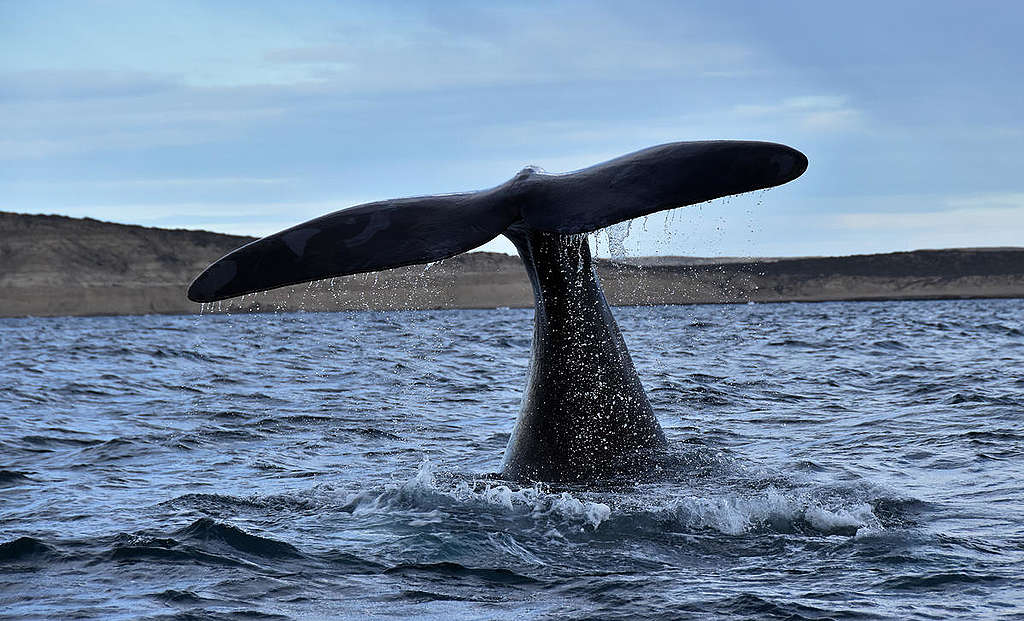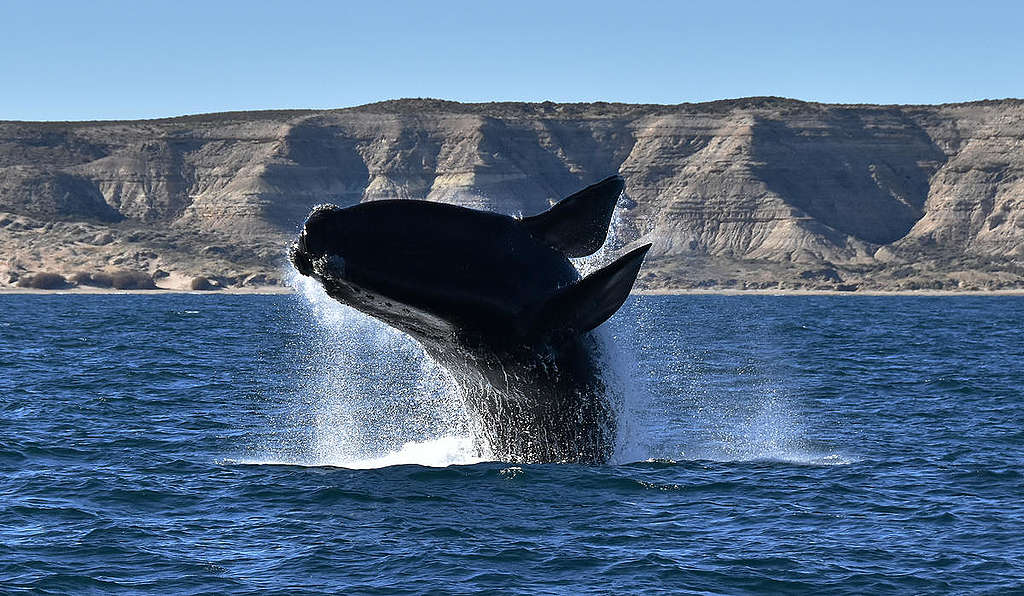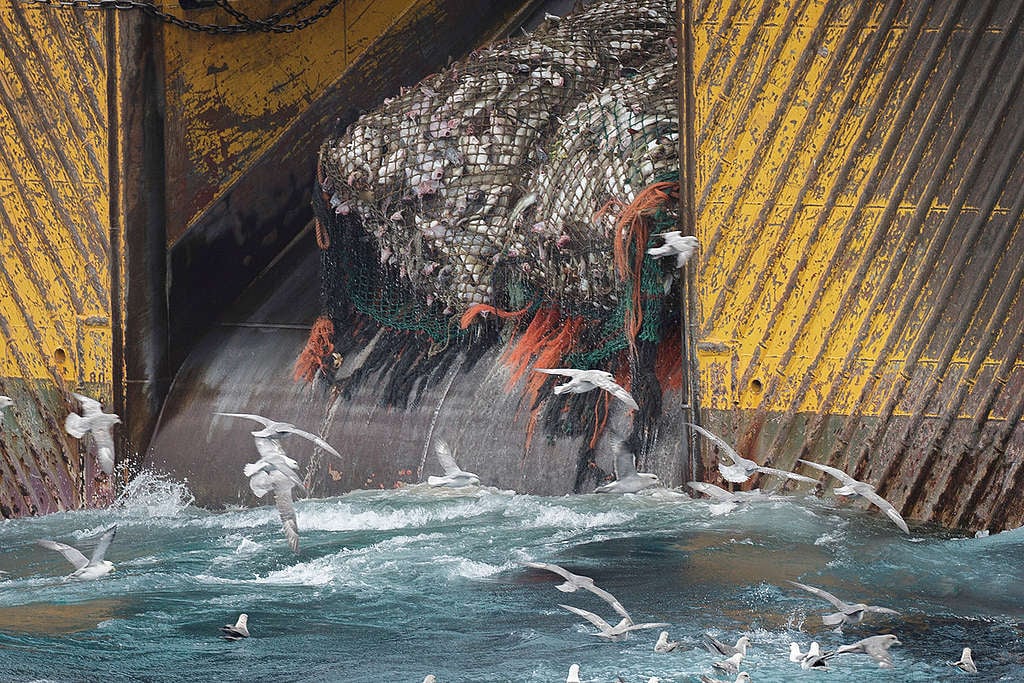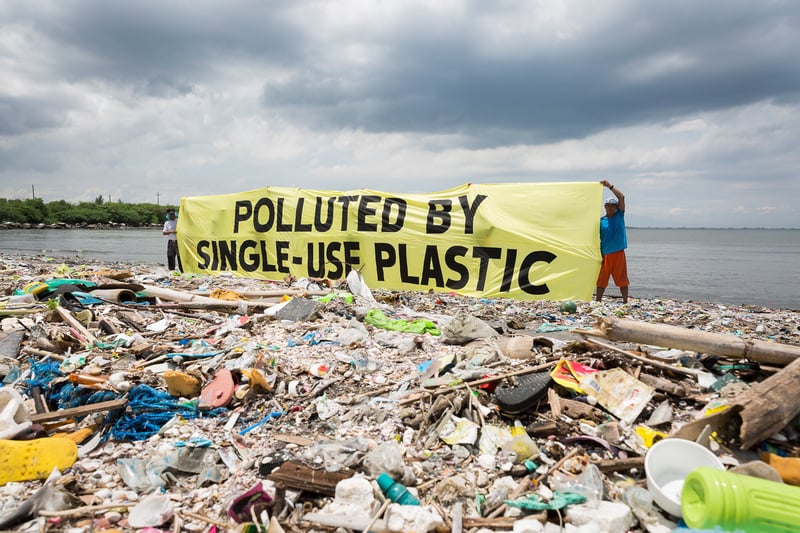Whales are very important for the oceans. It could be said that they are “ecosystem engineers” because they help, in various ways, to keep life at sea healthy by redistributing nutrients across the oceans.The Southern Right whale is no exception, but today their habitat, the international waters of the south west Atlantic , faces the threat of industrial fishing. We invite you to learn more about this incredible whale and why it is important to protect the oceans:

1- The Southern Right whale (Eubalaena australis) can be found in subtropical and waters of the southern hemisphere. They are quite curious and playful when they are close to humans.
2- It is one of the largest species of whale: the average male is 13 to 15 meters long and the average female is about 16 meters. They weigh around 40 tons.
3 – The characteristic calluses on the southern right whales’ skin function like fingerprints, and identify each whale throughout its life. Calluses are elevated areas of skin (more than 5cm thick) on different parts of their heads.
4- They are calm, curious and quite slow to swim (reaching maximum speeds of 9 to 11 km / h). To communicate they jump and splash their fins in the water.
5- They can live to be 100 years old!

6-Instead of teeth these whales use baleen plates to catch their food. Baleen are long sheets of keratin (the same as hair and fingernails) that hang from the top of the mouth. These baleen allow them to feed “by filter”: they open and close their jaws as they swim, using their throat and tongue to push the water back out of their mouths through the beards. This allows the water to flow out while catching the prey.
7-This species of whale feeds mainly on krill and small fish.
8- A third of all southern right whales in the world use the protected bays of the Valdés Peninsula in Argentina to mate and give birth between the months of May and December.
9- These whales can be seen in Argentina (Valdés Peninsula), Australia, South Africa, Chile, Uruguay, Tristán de Acuña (British overseas dependence) and New Zealand.
10-Unlike the North Atlantic and North Pacific whales (both endangered), the Southern Right whale has started to recover from centuries of commercial hunting.
How does industrial fishing affect the Southern Right whale?

Unfortunately today the whale ́s home is invaded by industrial fishing ships. The presence of hundreds of vessels that are installed at the border of national waters in the Argentine Sea is not good news for them.
Although their large size prevents them from being hauled in fishing gear they can still get entangled and caught. Destructive fishing techniques used by many fishermen can have devastating impact on the ecosystems in which the whales live and interact.
Whale sounds spread great distances in the sea. Nowadays the noise pollution in the ocean, especially that caused by boats, is increasing and there are concerns that it may affect communication between whales.
How can we protect the home of whales?
Globally, whales are facing more and more threats to their existence, owing to destructive human activities. Climate change, toxic pollution, plastics in the ocean, vessel collisions, habitat loss, and industrial overfishing depleting their food sources, are all having devastating impacts on most species. And the populations of many species are still recovering from decades of industrial whaling.
Scientists are increasingly understanding the role that whales play as part of a healthy ocean ecosystem in mitigating the impacts of climate change.
And yet these key whale migratory routes are filling with industrial shipping, including fishing vessels. Ship strikes continue to be a significant threat to whales globally.
Today there is no effective mechanism for the protection of oceans and areas that are outside national waters. That is why Greenpeace is asking governments to agree a strong Global Ocean Treaty that could protect the incredible life of the oceans, including migratory species such as the Southern Right Whale.
Join our campaign to protect the home of the Southern Right whale




Discussion
I'm very concerned about our you ecosystems especially with the global warming going on. I'm interested in becoming a marine biologist
Thank you for sharing with us. The ecosystem is in danger. Hence it is essential to take necessary measures now.